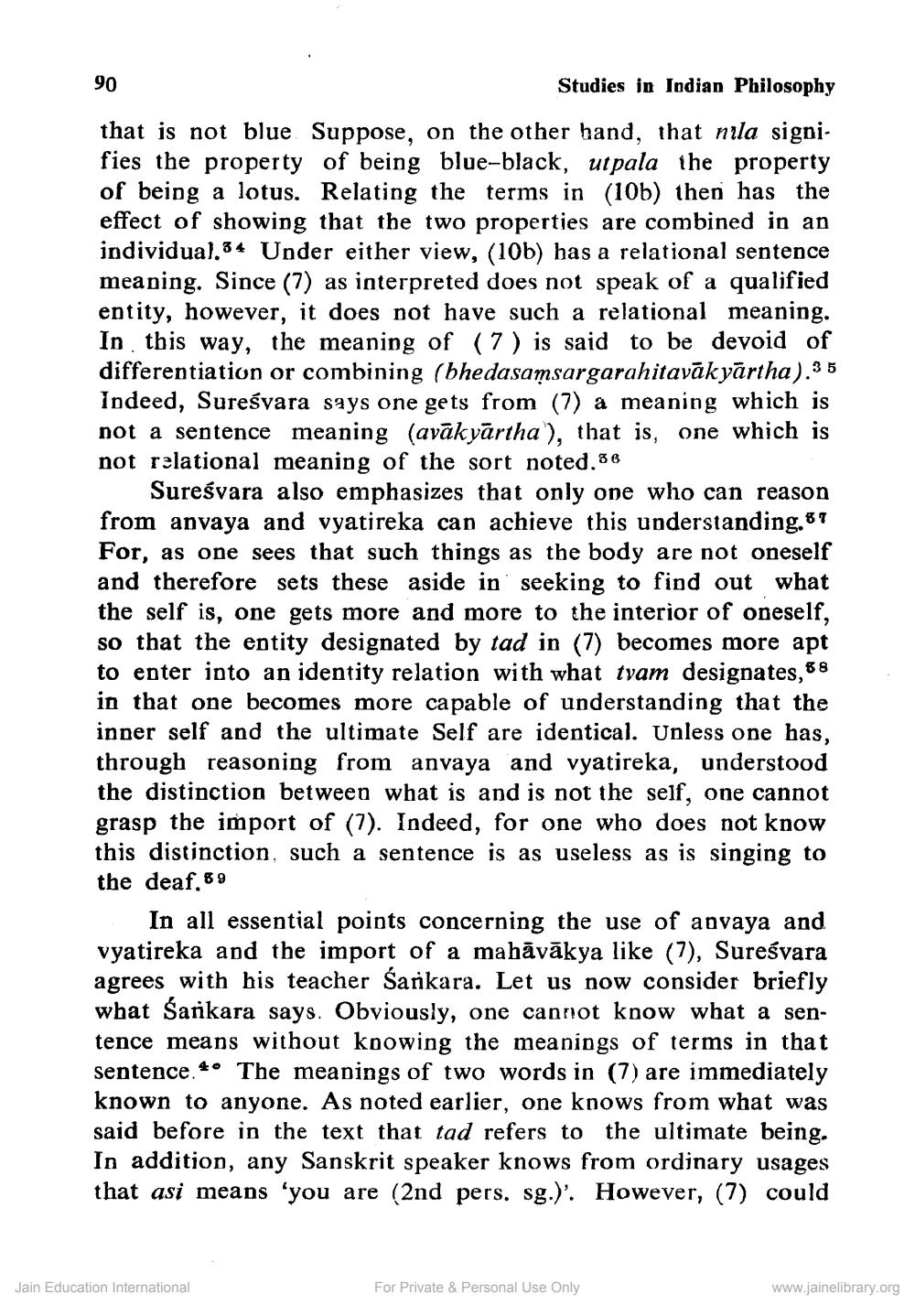________________
90
Studies in Indian Philosophy
that is not blue. Suppose, on the other hand, that nila signifies the property of being blue-black, utpala the property of being a lotus. Relating the terms in (105) then has the effect of showing that the two properties are combined in an individual.34 Under either view, (106) has a relational sentence meaning. Since (7) as interpreted does not speak of a qualified entity, however, it does not have such a relational meaning. In this way, the meaning of (7) is said to be devoid of differentiation or combining (bhedasamsargarahitavāk yartha).3 5 Indeed, Sureśvara says one gets from (7) a meaning which is not a sentence meaning (avākyārtha'), that is, one which is not relational meaning of the sort noted.
Sureśvara also emphasizes that only one who can reason from anvaya and vyatireka can achieve this understanding.87 For, as one sees that such things as the body are not oneself and therefore sets these aside in seeking to find out what the self is, one gets more and more to the interior of oneself, so that the entity designated by tad in (7) becomes more apt to enter into an identity relation with what tvam designates, 5 8 in that one becomes more capable of understanding that the inner self and the ultimate Self are identical. Unless one has, through reasoning from anvaya and vyatireka, understood the distinction between what is and is not the self, one cannot grasp the import of (7). Indeed, for one who does not know this distinction, such a sentence is as useless as is singing to the deaf.89
In all essential points concerning the use of anvaya and vyatireka and the import of a mahāvākya like (7), Sureśvara agrees with his teacher Sarkara. Let us now consider briefly what Śarkara says. Obviously, one cannot know what a sentence means without knowing the meanings of terms in that sentence. 4• The meanings of two words in (7) are immediately known to anyone. As noted earlier, one knows from what was said before in the text that tad refers to the ultimate being. In addition, any Sanskrit speaker knows from ordinary usages that asi means 'you are (2nd pers. sg.)'. However, (7) could
Jain Education International
For Private & Personal Use Only
www.jainelibrary.org




